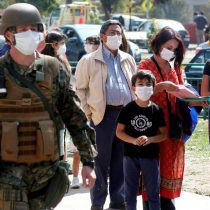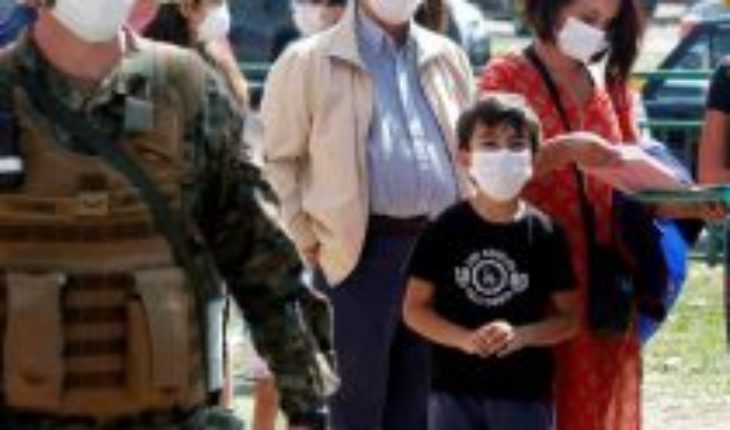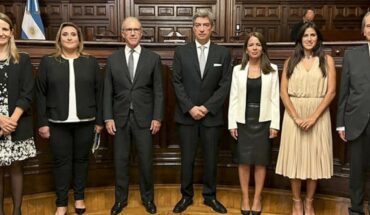
The COD-19 pandemic raises questions that go beyond the purely health: what challenge does this threat pose to the way we make a society?
The year 2000, under the direction of Norbert Lechner[1], UNDP published the report “More Society to Govern the Future”. Its central approach was that in order to balance market forces and build a truly democratic state, Chile had to be able to strengthen its collective life. It wasn’t just about growing more, producing more, or modernizing public action. The challenge was to build more society, more trust, more sense than the ordinary. Only in this way, he told us, could the aspirations of Chileans and Chileans to build a better life for themselves and others have a place.
What happened during these twenty years? Basically two things.
First, sustained in the Constitution of ’80, neoliberal policies exacerbated numerous negative effects that capitalism was already having on social life: inequality, exclusion and weakening of citizenship; precarization of everyday life; social fragmentation; weakening of bonding, solidarity and social trust; weakening of the public sphere and a growing tendency to personal fulfilment through hedonism and hyperconsumon.
Second, public policies linked in some way to the strengthening of collective processes, the construction of social capital, the generation of trust and the strengthening of community life, have maintained a very marginal importance. In fact, many of them had negative effects, while promoting competition between organizations through the logic of insolvency funds or the targeting of state action in heavily narrowed and deteriorating territories. Chile does not have universal policies to strengthen civil society or local communities.
The interaction between the dissolution of the social that neoliberal capitalism has and the inaction of the state in the field of the promotion of the common, gave rise to a type of social life with a deep retraction towards the private, a widespread mistrust in “the other” and an exacerbation of competition as a central value, according to which each is saved as he can.
The future that Lechner aspired to could govern collectively, seems to have been transformed into millions of individual biographies, each seeking to resolve systemic contradictions in solitude.
But these biographies collapsed on October 18 and the long-contained discomfort contained in them overflowed. So many times we saw those who are “up” systematically abusing their position of power to collude, steal, evade taxes, coerge, get impunity and/or enrich themselves at the expense of the rest of society, that inequality, rather than “normalizing”, by its excesses ceased to be seen as the natural order and began to be understood as injustice. And from there came the demand for dignity. In other words, it has fallen into the mind that the precariousness of one is linked to the privilege of others.
The feeling of injustice has had the power to channel and make sense of the discomfort and daily suffering that most Chileans and Chileans have been experiencing for decades: the difficulties of reaching the end of the month, extensive and strenuous working days, long trips from home to work, difficulty being cared for in the health system, the precariousness of the neighborhood, price hikes in basic services, the carvity of medicines, stress, depression, among many others.
And we were in this when the coronavirus arrived.
We believe that the difficulties we have faced in collectively taking on this pandemic raise questions in substance about the kind of society we need to build today.
How collective are our demands? What role does reciprocity, social trust and solidarity play in demand for a State that recognizes and safeguards rights and restores the balance of power between the different actors in society? What are we willing to put on the table each of us and of us for the construction of a fairer society?
The problem of Chilean society, as of others, is not just a state and constitution co-opted by neoliberal ideology and the groups that represent it. It is also a culture that has difficulty connecting personal well-being with the collective common good.
We’re twenty years late to listen to Norbert Lechner, but it’s still worth the effort. The current crisis is not solved only by a “above” political agreement or a set of new laws. The crisis is only beginning to be solved to the extent that we regain our sense of society, of sharing, of feeling part of a common project. And that does not take place by decree; it is built every day when we start to act together, participating in everyday processes of social transformation.
[1] Prominent Chilean researcher, political scientist and nationalized lawyer. He was director of the Latin American Faculty of Social Sciences from 1988 to 1994 and a researcher on the Chile Human Development team of the United Nations Development Programme.
Francisco Letelier Troncoso, Sociology – Catholic University of Maule
Patricia Boyco Chioino, SOUTH Corporation for Social Studies and Education
Victor Fernández González, University of the Americas
The content poured into this opinion column is the sole responsibility of its author, and does not necessarily reflect the editorial line or position of El Mostrador.




